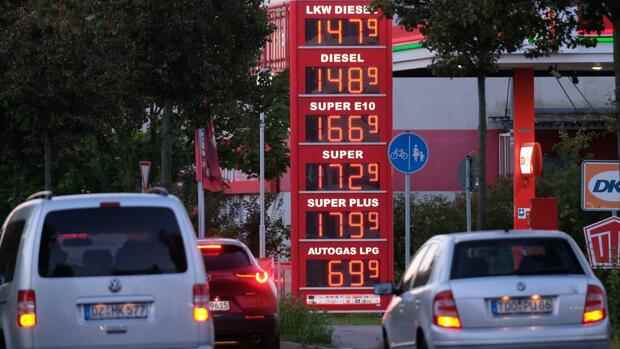Energy prices rose by around 17 percent in September.
(Photo: dpa)
Frankfurt Inflation in the euro zone rose faster than expected in September. The European statistics agency Eurostat announced on Friday in a flash estimate that consumer prices rose by 3.4 percent year-on-year. The last time the inflation rate was higher was in September 2008 at 3.4 percent.
Economists had expected an average increase of 3.3 percent this time, after consumer prices had risen by 3.0 percent in August.
The core inflation rate excluding energy and food also rose. It increased from 1.6 percent in August to 1.9 percent. Economists expected this. Core inflation is considered by many economists to be a more reliable measure of inflation because it tends to fluctuate less.
The price of energy rose particularly sharply, with costs skyrocketing by 17.4 percent compared to the same month last year. Industrial goods were 2.1 percent more expensive, excluding the energy sector. Groceries, alcohol and tobacco also went up by 2.1 percent.
Top jobs of the day
Find the best jobs now and
be notified by email.
This means that the inflation rate is above the European Central Bank (ECB) target for the third month in a row. Since its strategy check, this has been aiming for an inflation rate of two percent in the medium term. Her inflation target had previously been below, but close to, two percent. The new goal should also be understood symmetrically – deviations upwards and downwards are equally undesirable.
In the opinion of the monetary authorities, however, a large part of the current price increase is only temporary and caused by the consequences of the corona crisis. The oil price fell particularly low last year, and the year-on-year increase is now correspondingly high. The withdrawal of the VAT cut in Germany is also making itself felt.
The ECB raised its inflation forecast significantly in September. ECB Deputy Chief Luis de Guindos sees the peak of the inflation surge in around November. For this year she now expects a rate of increase of 2.2 percent for the euro area. After that, she reckons with lower values of 1.7 percent for 2022 and 1.5 percent for 2023.
More: The underestimated inflation – why prices keep rising.
